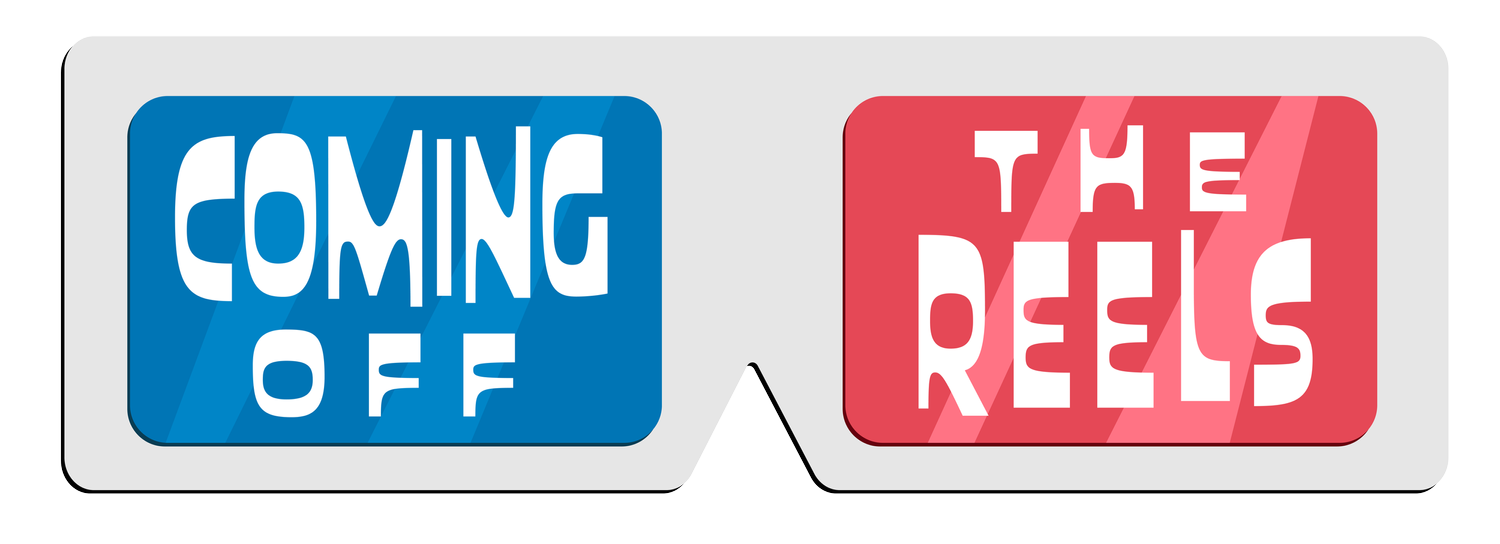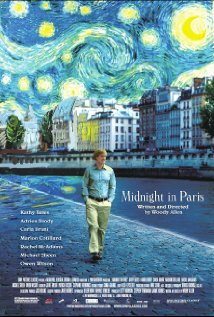Directed by: Woody Allen Starring: Owen Wilson, Rachel McAdams
Even before I read The Great Gatsby, I wanted to live in the 1920s. Beads, jazz, bobs, long cigarette holders, the Charleston, speakeasies…it all sounded like great fun. Then once I found out about all the American expats living it up in Paris…the artistic/intellectual community of that era is the Elysian Fields for any wannabe author of the next Great America Novel.
Judging by Midnight in Paris, I am not alone in that regard. Gil (Owen Wilson) is a successful screenwriter longing for a more 'authentic' writing career. In Paris with his fiancée Inez (Rachel McAdams) and her parents, he longs to ramble around the city in the rain with very romantic notions of what it was like in the golden age of the 1920s where authors and artists partied and mingled in a French mecca of creativity. Inez is definitely not on the same wavelength, preferring wine tasting, gallery tours and late nights of dancing with her pseudo-intellectual American friend Paul (Martin Sheen) and his lady friend Carol (Nina Arianda).
One night Gil is off on a late-night walk, resting on some stone steps when an old-time car pulls up. The jovial passengers offer him a lift, and Gil is spirited off to a fine party where the women are dressed like flappers, Cole Porter is playing the piano, and Zelda and Scott Fitzgerald invite him to pal around for the evening, ultimately leaving him at a café to chat with Hemingway (Corey Stoll). Amidst talk of courage, grace and war, Hemingway refuses to read and comment on the gobsmacked Gil's novel in progress but suggests Gertrude Stein could provide a more fair opinion on it. Hurrying off to get his manuscript, Gil wanders back into his world.
Determined to get back to the roaring twenties again, Gil is in a hurried daze, tolerating Paul's blathering and Inez's putdowns only because he is whiling away the hours until the evening. Paul particularly mocks Gil's infatuation with 1920s Paris as he says living in the past and nostalgia is all a big romantic fallacy. Gil tries to share this fantastic journey with Inez, but she refuses to wait with him for the car, and Gil again travels into the partied past alone to take his manuscript to Gertrude Stein (Kathy Bates). While there, he meets Picasso's beguiling young mistress Adriana (Marion Cotillard) and she loves the first sentence of his novel. Gil is charmed, particularly because this woman who has been the mistress of many famous artists is willing to engage in idle chatter with him.
Over the next few days, Gil rewrites the first few chapters based on Stein's feedback, evaluates the gulf between his ideals and Inez's, and attempts to woo Adriana in the 1920s (despite competition from Hemingway). I won't spoil the unfolding of the plot, but it does end with Gil taking an evening stroll in the rain with a lovely young woman.
Overall, this movie is absolute paradise for anyone who revels in literary/artistic references (there is even a nod to a film I previously reviewed, Luis Buñuel's The Exterminating Angel). I also found the film even more fantastic after I had a few glasses of wine (everyone in the movie was drinking; I felt silly not joining in). And with a Hemingway-ian sentiment, I should have disliked this movie because I didn't think of it first.
If you:
- Have ever felt you belonged to a different time period.
- Have taken far too many Humanities classes and go nuts for both overt and semi-obscure references to artists and authors of the given era.
- Have been scoffed at for having very romanticized notions of certain times and places
- Are a real intellectual that has ever been annoyed by a pseudo-intellectual
Put it in the queue!
However, if you:
- Think the present is the golden age
- Prefer disco to the foxtrot
- Look down on France because of their politics and/or are a Tea Party Republican
Don't put it in the queue!

